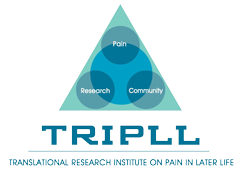Manuscript published in Pain Medicine
Authors: Zachary G. Jacobs, MD, D. Michael Elnicki, MD, Subashan Perera, PhD, and Debra K.
Weiner, MD
Abstract:
To determine 1) the feasibility of implementing an e-learning module on chronic low back pain (CLBP) in an older adult into an existing internal medicine residency curriculum and 2) the impact of this module on resident attitudes, confidence, knowledge, and clinical skills relating to CLBP.
Participants were assigned to complete either the online module (N = 73) or the Yale Office-based curriculum on CLBP (N = 70). Attitudes, confidence, and knowledge were evaluated pre- and postintervention via survey. A retrospective blinded chart review of resident clinic encounters was conducted, wherein diagnosis codes and physical exam documentation were rated as basic or advanced.
There was no improvement in overall knowledge scores in either group (60% average on both metrics). There were tendencies for greater improvements in the intervention group compared with controls for confidence in managing fibromyalgia (2.4 to 2.9 vs 2.5 to 2.5, P = 0.06) and leg length discrepancy (1.8 to 2.5 vs 1.5 to 1.9, P = 0.05). Those exposed to the online module also showed an increase in the percentage of physical exam documentation rated as advanced following the intervention (13% to 32%, P = 0.006), whereas the control group showed no change (14% to 12%, P = 0.68).
An online module on CLBP in the older adult was a feasible addition to an existing curriculum for internal medicine residents. The module positively and substantively impacted resident clinical behaviors, as evidenced by enhanced sophistication in physical exam documentation; it also was associated with improved confidence in certain aspects of chronic pain management
Click here to read the full article.
